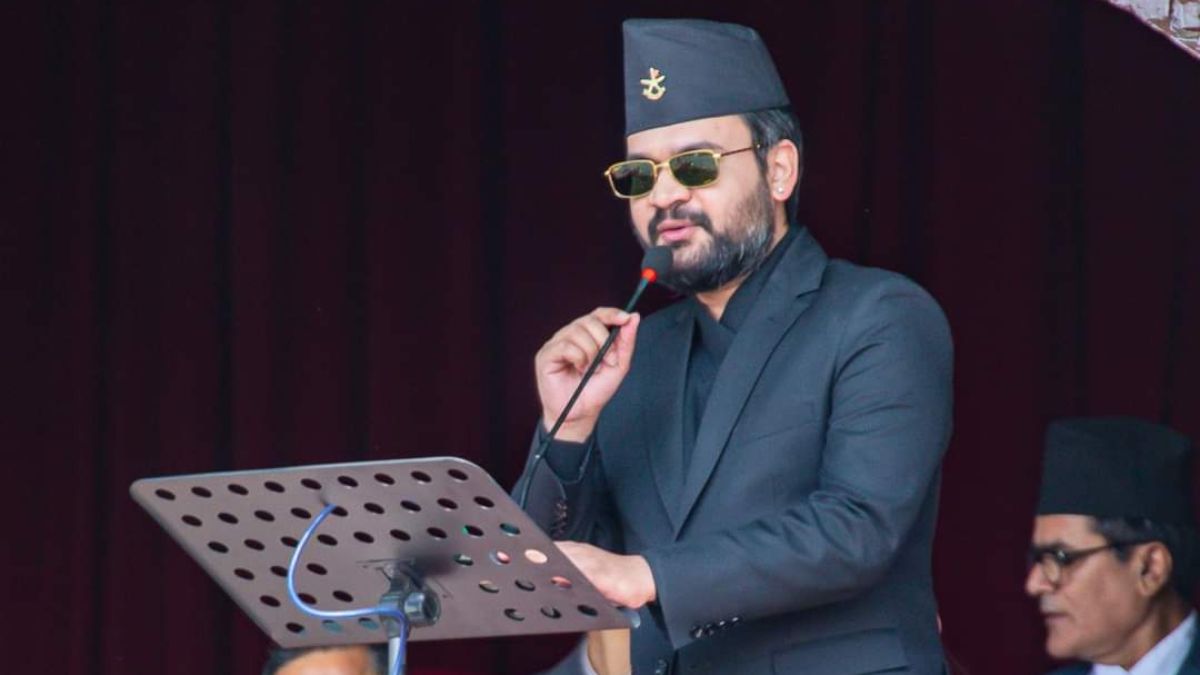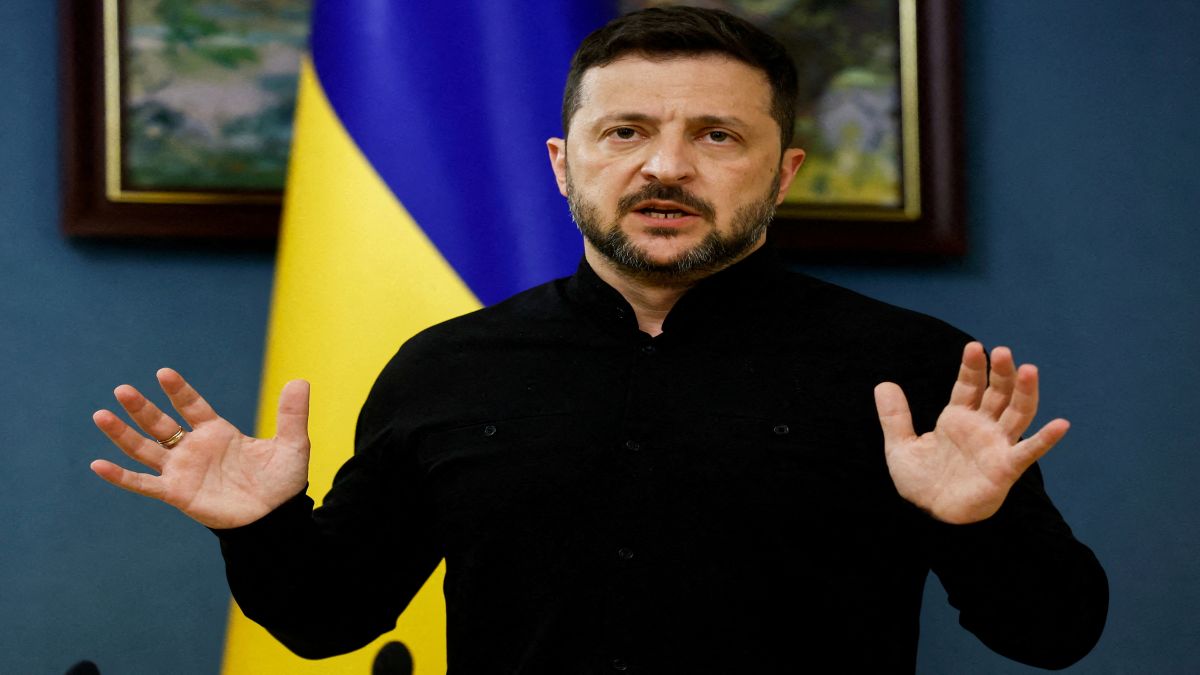With the resignation of Nepali Prime Minister KP Sharma Oli amid escalating unrest, the spotlight has shifted to Kathmandu’s Mayor, Balendra Shah, better known as Balen, who has emerged as a prominent figure symbolising hope for change, especially for the “Gen Z” protesters leading the charge.
The week-long protests that led to Oli’s resignation were marked by widespread youth participation and a deadly police crackdown, with young protesters demanding accountability and transparency from Nepal’s government.
While Balen has not declared his candidacy for the top post, young demonstrators across the country are calling for him to step up and lead Nepal.
How Nepali PM KP Sharma Oli was forced to resign
The unrest began after the government’s controversial decision to ban popular social media platforms, including Facebook, Instagram, YouTube, and X, in what critics described as an attempt to stifle dissent and limit free expression.
The decision backfired, sparking demonstrations nationwide that quickly escalated.
On Monday, the protests took a violent turn. Police attempted to suppress the demonstrations with aggressive measures, resulting in widespread chaos and tragic loss of life.
Reports indicate that at least 21 people have been killed till now, including 18 in Kathmandu alone, many of whom were students dressed in school and college uniforms.
The crackdown also left more than 345 people injured, overwhelming hospitals across Nepal. In response, citizens rushed to donate blood, with volunteers queuing outside blood banks to help the injured.
Editor’s Picks
As public anger mounted, the government’s position became increasingly untenable.
Follow Firstpost’s coverage: Nepal Gen Z Protest Live Updates
On Tuesday, Oli announced his resignation as PM, bowing to the pressure from relentless protests and a rapidly deteriorating security situation.
Observers have described the youth-led demonstrations as a force that has “swept away old ways of doing things,” signalling a possible shift away from entrenched political practices marked by corruption and nepotism.
Many political analysts are now urging leaders to guide Nepal forward through “peace, dialogue, and cooperation” rather than further confrontation.
How Balen reacted to the protests
Throughout the crisis, Balen Shah has been a vocal supporter of the movement, although he has carefully positioned himself as an ally rather than a participant.
On Monday, he expressed his solidarity with the youth-led demonstrations through a Facebook post.
“The rally is clearly a spontaneous movement of Gen Z, for whom even I may seem old. I want to understand their aspirations, objectives, and thinking. Political parties, leaders, activists, lawmakers and campaigners should not be oversmart to use this rally for their own interests,” he wrote, adding that while he would not physically attend the protests due to an age cap set by organisers, his full support lay with the younger generation.
pic.twitter.com/3OTAzg8s9P
— Balen Shah (@ShahBalen) September 7, 2025
The following day, after the prime minister’s resignation, Balen issued another appeal, this time calling for calm and urging demonstrators to avoid further violence or destruction.
pic.twitter.com/RO38wsy2Dm
— Balen Shah (@ShahBalen) September 9, 2025
“Please remain calm. The loss of national resources is our collective loss. It is now necessary for all of us to show restraint. From here onwards, it is your generation that must lead the country,” he wrote.
Before entering politics, Balen was widely known as a rapper, lyricist, and social commentator who used music to address deep-rooted social and political issues.
His songs, often performed in Kathmandu’s underground hip-hop scene, struck a chord with young Nepalese who were frustrated by corruption, inequality and lack of development.
One of his most popular songs, Balidan (Sacrifice), has amassed over seven million views on YouTube, becoming something of an anthem for those seeking change.
In one of his earlier tracks, he rapped a line that has since become emblematic of his political outlook, “All those who protect the country are fools. All leaders are thieves, looting the country and eating it up.”
Discussing his transition from music to governance, Balen once remarked, “There’s a diss culture in hip-hop. I used to diss politicians. Now, I am one.”
His unique background helped him connect with younger voters, who saw in him a leader who understood their frustrations and aspirations.
What we know about Balen Shah
Balen Shah was born on April 27, 1990, in Naradevi, Kathmandu, into a Maithil origin Madhesi family. He is the youngest son of Ram Narayan Shah, an Ayurvedic practitioner, and Dhruvadevi Shah.
The family originally hailed from Mahottari District in Nepal’s Madhesh Province but moved to Kathmandu after his father was assigned to work at the Naradevi Ayurvedic Hospital.
Balen attended VS Niketan Higher Secondary School before pursuing higher education in engineering. He earned a Bachelor of Engineering (BE) in Civil Engineering from Himalayan Whitehouse International College in Kathmandu.
He later travelled to India, where he completed a Master of Technology (MTech) in Structural Engineering from Visvesvaraya Technological University (VTU) in Karnataka.
He is married to Sabina Kafle who reportedly works in the health sector.
How Balen rose to become Kathmandu mayor
Balen entered mainstream politics in 2022, contesting the Kathmandu Metropolitan City mayoral election as an independent candidate.
Refusing to align with any of Nepal’s dominant political parties, he ran a grassroots campaign that highlighted transparency, accountability, and practical solutions to the city’s problems.
At just 33 years old, Balen achieved a historic win, becoming the first independent candidate elected as mayor of Kathmandu.
He secured over 61,000 votes, defeating powerful rivals from well-established political families and signalling a major generational shift in the capital’s political landscape.
On the campaign trail, Balen cultivated a distinctive image that set him apart: a black blazer paired with jeans, square sunglasses, and the Nepalese flag draped over his shoulders.
Even when critics accused him of disrespecting the flag and lodged complaints with the election commission, his popularity only grew.
Once in office, Balen quickly moved to implement reforms. One of his first actions was to introduce live telecasts of municipal council meetings, giving residents unprecedented access to decision-making processes.
He also tackled Kathmandu’s long-standing garbage disposal crisis. On June 6, 2022, his administration reached an agreement with the Ministry of Urban Development to begin systematic waste collection.
Later, on August 18, 2022, following a four-point deal between local communities and government representatives, Balen authorised private companies to manage the disposal of uncollected solid waste, significantly improving the city’s sanitation efforts.
How Balen as mayor is not without controversy
One of the most contentious issues involved his administration’s crackdown on street vendors. Human Rights Watch and other organizations accused municipal police of using excessive force, citing videos that showed vendors being chased, beaten, and having their goods confiscated.
Critics argued that such actions disproportionately affected the urban poor, especially given that nearly half of Nepal’s economy relies on informal businesses.
In September 2023, activist Iih staged a dramatic protest, standing outside Kathmandu City Hall for 199 hours to demand that vendors be allowed to operate until a fair alternative could be developed.
The protest drew support from prominent figures, including Kathmandu’s four-time MP Gagan Thapa, former Deputy Prime Minister Kamal Thapa, and former Finance Minister Surendra Pandey.
In response, Balen defended his policies, stating on Facebook that he was enforcing laws passed by lawmakers like MP Gagan Thapa.
Ultimately, the standoff ended in a compromise. The city agreed to issue temporary permits for designated areas and times, develop long-term solutions for street vending, and return confiscated goods to their rightful owners.
Balen also faced national headlines when he banned Indian films in Kathmandu, demanding the removal of a line in the movie _Adipurush_ that referred to “Sita as the daughter of India.”
The ban prompted a legal battle, with the Patan High Court issuing an interim order against his decision.
Initially, Balen defied the ruling, taking to Facebook to accuse both the federal government and the courts of acting under Indian influence. His defiance sparked a writ petition in the Supreme Court accusing him of contempt of court.
The next day, Balen reversed his position and allowed screenings to resume.
Unlike many city mayors whose influence rarely extends beyond municipal boundaries, Balen’s popularity has grown nationwide and even internationally.
With inputs from agencies
End of Article

)

)